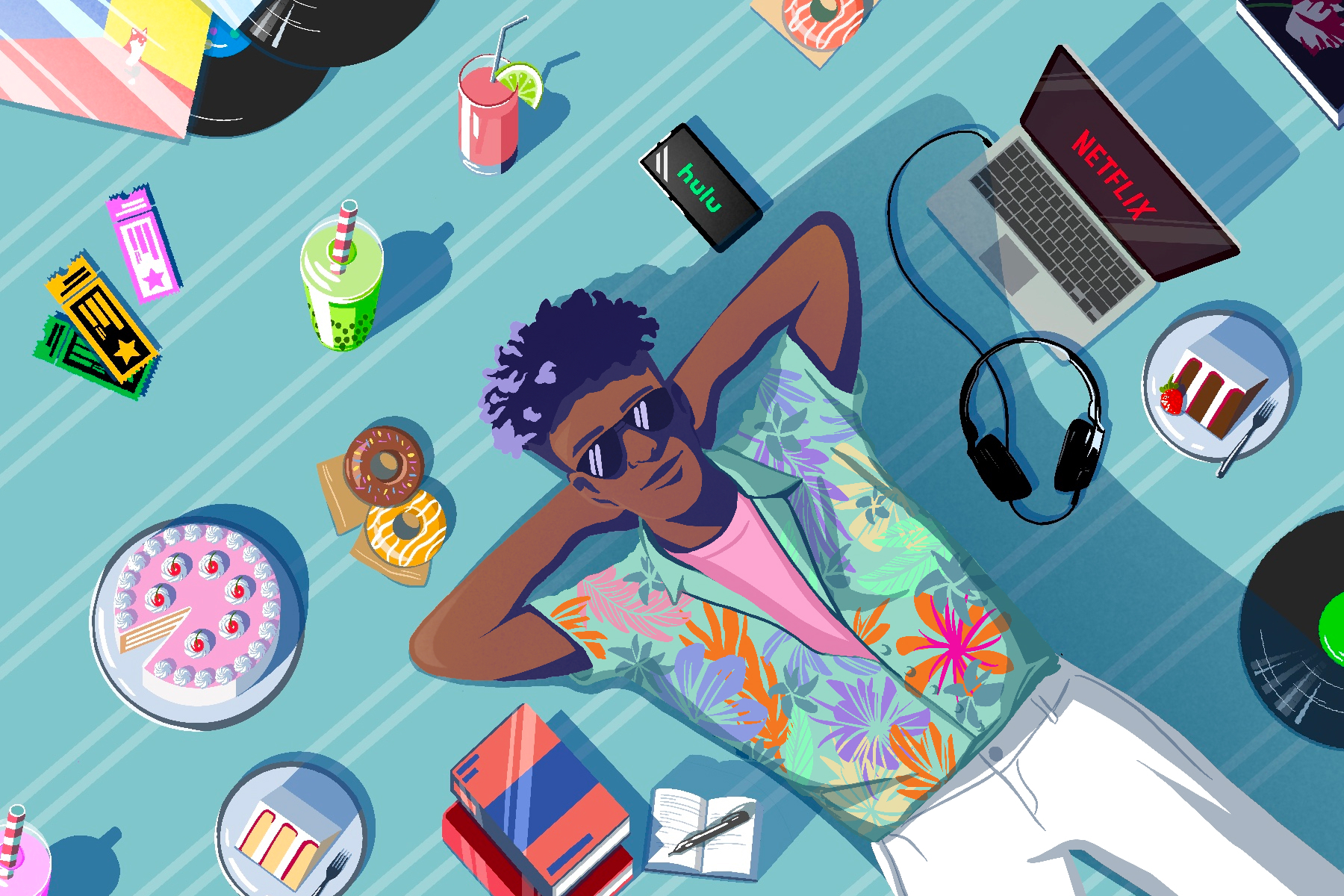Freshman orientation is an uncomfortable situation for just about everyone. You’re required to walk around an unfamiliar campus with an unfamiliar crowd and exchange pleasantries in a desperate attempt to make friends. Every Facebook forum seems to depict students who met their best friends at orientation, so you’re left feeling panicked if you don’t find that immediate connection with someone else.
The fear increases if you experience particular bouts of social anxiety or find crowded spaces overwhelming. Every thought running through your mind makes you second guess yourself in a monsoon of intrusive questions, such as “Was that a weird thing to say?” or “Will they judge me because of this?” Although most of orientation consists of presentations about campus policies, there’s always one dreaded icebreaker activity that’ll send your anxiety skyrocketing: the beach ball questionnaire.
Individuals participate in the game by throwing a beach ball with various questions written on it around the room. If it comes to you, then you must answer whatever question your thumbs touch. It includes a few benign questions such as “What’s your favorite fast-food restaurant?” or “What’s your favorite color?” But of course, when the beach ball came to me at my freshman orientation, I got the absolute worst question the inflatable sphere could carry: What is your guilty pleasure?
What’s Wrong With Having a Guilty Pleasure?
During my turn for the beach ball questionnaire, I hung my head in shame and quietly whispered to myself, “Sex and the City.” Anyone close to me knows how much I adore the show, despite its dated and exclusionary commentary on modern sexuality, lack of representation and unfortunate shortcomings from lead Carrie Bradshaw.
But as someone who’s watched SATC in its entirety countless times, I can at least understand and appreciate its relatively transformative nature (for the early 2000s), as well as its ability to portray female sexuality openly and honestly. I love the show’s secondary characters and depiction of female friendships, even if they’re somewhat “pie in the sky.” It’s one of my favorite series amid all its valid criticisms, but explaining such nuances would take longer than the five minutes afforded during orientation icebreakers.
Thankfully, no one heard me whisper my true answer. So, for all intents and purposes, I did not denote “Sex and the City” as my guilty pleasure. Instead, I opted for something less controversial like “Hell’s Kitchen” to avoid judgment from my peers or the perception that I was culturally tone-deaf. Although nobody would admit it, I don’t think I was alone in this phenomenon.
The term “guilty pleasure” invalidates our interests and makes them seem like a bad thing to enjoy. Although I believe everyone is entitled to find delight in things without judgment so long as they’re not hurting anybody else, I do agree that some movies, TV shows and music artists are kept private in fear of judgment.
What’s the Reason Behind Our Guilty Pleasures?
Though the meaning behind guilty pleasures is self-explanatory, it goes beyond sheer guilt and what makes them potentially cringe-worthy. At their most basic level, guilty pleasures exist due to something’s quality, level of “intelligence” or target audience. They are then compared to the consumer’s perceived fitness within said audience. Thus, guilty pleasures harbor a sense of shame associated with such preferences because they don’t fit the status quo or societal norm.
However, these barriers don’t physically exist. They are instead devised by a society intent upon stripping individuality in lieu of cultural acquiescence. We retain a sense of pseudo-independence until we reach a certain age at which we must then conform to achieve social acceptance. Although we often deem guilty pleasures harmless or even beneficial to the individual, they pose a greater problem when trying to gain a basic level of acceptance by society.
This is especially prevalent during a time where pop culture turns into a political minefield. Outwardly expressing admiration for something deemed culturally oblivious or offensive can socially damn Gen Zers. Though we must acknowledge the historically racist and sexist nature of popular culture, certain forms of media get taken out of context, only to be vilified by social media. Sometimes the content warrants the vilification, so it’s understandable if you’re apprehensive to metaphorically place yourself under certain flags. It’s easy to conflate your involvement as a consumer with supporting everything a certain media is guilty of. Therefore, avoiding any association with such media becomes a key behavior in the creation of guilty pleasures.
So, How Do We Go About Enjoying Our Guilty Pleasures?
First, we must acknowledge that not everything will receive admiration from everyone, and that’s okay. It’s beneficial to take an interest in hobbies or media that are wholly our own. Being confident in your own interests helps express a more whimsical nature and allows you to connect to a deeper sense of self. Separating your private life from external influence is healthy, despite what social media may lead its consumers to believe. And although I’m just as guilty of wanting others to like me, I must also acknowledge it’s not so much my surface-level interests but rather my personality that should drive my relationships.
When deeming something a guilty pleasure, acknowledging the reason why it deserves that title becomes just as integral to its sheer depiction as one. Though the responsibility belongs to the consumer (and not the potentially harmed group) to understand the cultural implications of the media they’re consuming, it’s also okay to appreciate what once was and work toward improving it in the future. I will not stop liking “Sex and the City” because of its misgivings but rather appreciate it for what it was. I hope other shows take inspiration to create something better, more representative and even more entertaining.
— kim (@therealkimj) May 8, 2021
But, if something such as a song or TV show is your guilty pleasure simply because it could be deemed embarrassing for someone of your age or caliber, maybe we should change our perceptions and not our predilections. As Twitter once popularized, “do not kill the part of you that is cringe … kill the part that cringes.”
















